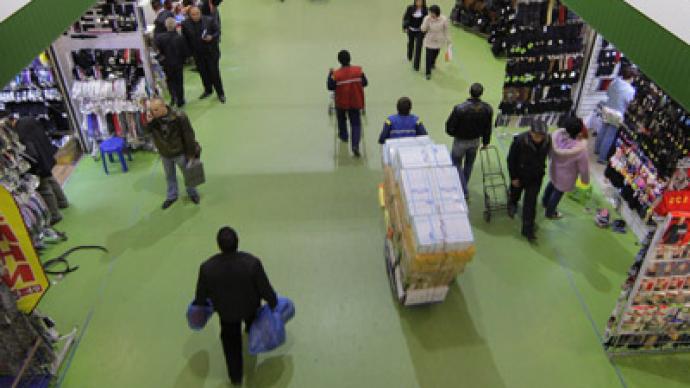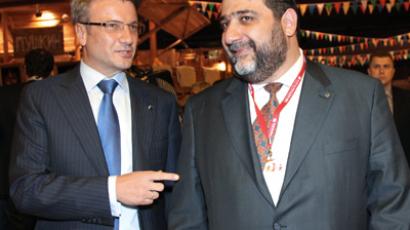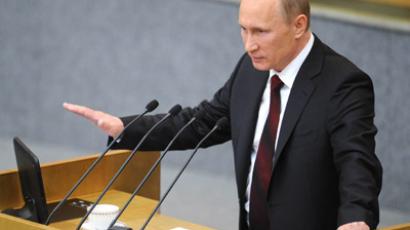Making and selling to be the future of Russian economy

Diversification of the economy is going to be the main challenge for the new Russian Government according to experts. Retail and manufacturing would have to become the main drivers of Russia’s economy in the near future.
They agree Russian non-commodity related industries have a great potential for growth, while the resource sector that has been pushing forward Russia’s economy for the last decade is slowing down.“Over several years since 2005 with the only exception being the crisis in 2009 the manufacturing sector has grown faster than the oil sector, which says Russian economy is diversifying,” Alexey Devyatov, Chief Economist at Uralsib told RT. “It is a kind of slow process but we see it happening”.Indeed, the HSBC Purchasing Managers Index (PMI) report shows manufacturing in Russia is growing. April reported the best overall performance of the sector since March 2011 as the country grew to 52.9 from 50.8 in March.Presidential aide Arkady Dvorkovich, agrees industries not related to oil and gas show a high growth rate. “But oil prices are still high on the global market, that’s why the share of the oil and gas sector is still high,” he said.The IT sector and retailers are showing impressive growth, according to Jeffrey Nickolson, the Head of Consulting practice, PwC Russia. “I think most of the growth would come from the actions of companies not from the government,” he said.In order to support businesses in Russia the new government should focus on modernization and innovation, Mr Jefferson pointed out. “Modernization is more about fixing the infrastructure. In innovation it’s more about encouraging new companies, and new institutions to do research,” he explained.Experts are of the same opinion that the Government has to take significant measures to create a better investment climate in the country. “Government should take business seriously,” says Ksenia Yudaeva, chief economist at Sberbank. “Government is inconsistent in implementing reforms. It takes little steps to improve business climate, but makes big steps in the opposite direction like establishing a State Corporation in the Far East”.Also Russian legislation requires improvement to protect property rights and to provide flexible tax policy, experts say. “Business really needs a decreasing tax burden,” Mr Devyatov pointed out.Meanwhile experts’ advice corresponds with the promises of President-elect Vladimir Putin. During his annual address to the parliament Putin pledged to fix the country's fragile investment climate. He promised to shake up the Russian legislation to make Russia more hospitable to foreign businesses before the end of the year, and to introduce the position of an ombudsman to champion investors' rights. The investment climate was at the top of agenda during the rule of outgoing President Dmitry Medvedev but his policies failed to halt capital flight and the lower investment attractiveness of Russia as $84bln left the country last year alone.














